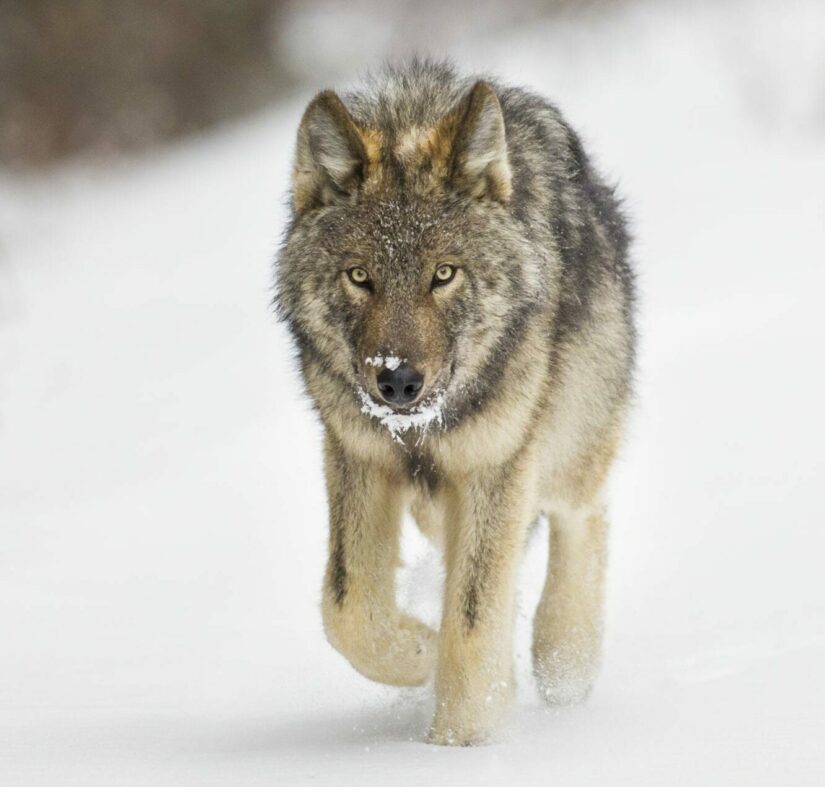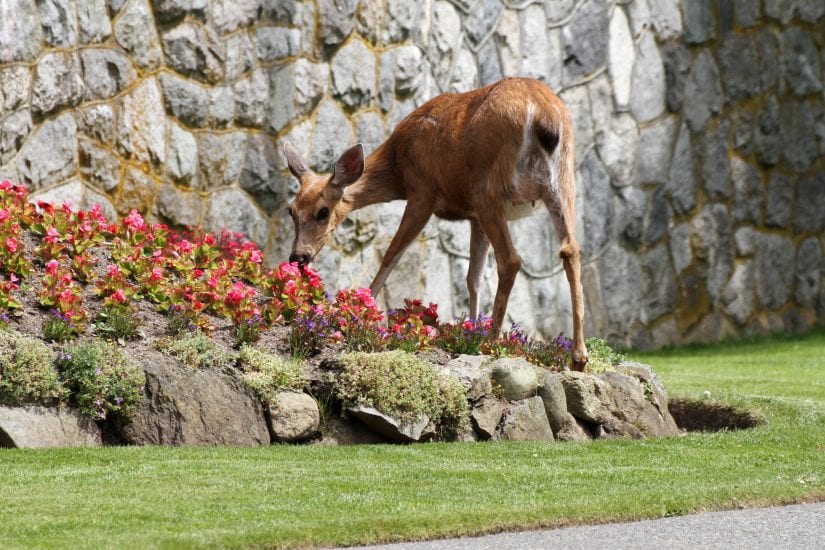“Although other animals may be different from us, this does not make them less than us”
Marc Bekoff, Animals Matter: A Biologist Explains Why We Should Treat Animals with Compassion and Respect
Can conservation be compassionate?
Conservation practices like hunting, trapping and capturing animals to manage populations have been common since the 20th Century. Animal welfare and conservation were once considered separate issues, but the field of Compassionate Conservation merges these ideas.
Compassionate Conservation is a scientific discipline that fully considers animal welfare and ethics in conservation, research, policy and practice. A new generation of students and academics, championed by seasoned conservationists and animal welfare scientists and ethicists, is embracing this movement.
In B.C., we perform controversial practices like wolf culls, trophy hunting and urban deer culls. Many experts and members of the public question how wild animals are killed and captured “in the name of conservation” without environmental, ethical and economic justification.

They ask questions like:
- Should we kill one species to save another?
- Should we hunt animals that we don’t eat?
- Should we kill predators like wolves to increase prey populations?
- Should we move some animals to new habitats?
- Should we capture, breed and display wild animals?
- Should we use a mark or tag to study an animal given it permanently harms the animal?
Compassionate Conservation is not opposed to intervening in natural processes or prioritizing endangered species, but it does question the decisions we currently make that benefit human needs over those of animals.

The principles of Compassionate Conservation include:
- Respecting wild animals for their inherent value, not just as a resource for people
- Recognizing the importance of individual animals within their population as they provide stability for groups
- Avoiding using labels like “pest” because the label reflects our attitudes
- Understanding that coexistence is often a more effective management option
Considering these principles and actions will reduce individual harm and suffering, and improve conservation outcomes. Taking this into practice, the BC SPCA and UBC hosted an international workshop in 2015 to apply theory into the field of wildlife control. Academics, welfare and conservation experts, and pest control experts were invited to help develop an ethical framework for decision-making for wildlife management and conservation dilemmas. This led to the 2017 Conservation Biology publication International Consensus Principles for Ethical Wildlife Control (infographic PDF). These consensus principles were used to guide the development of the AnimalKind Wildlife & Rodent Control Standards, to inform Parks Canada eradication programs, and even were introduced in spring 2022 into the Scottish Parliament as a motion to shift wildlife management in the country.
Compassionate conservation’s B.C. beginnings
 B.C. is a hotspot for wildlife and controversial management practices. One of the first meetings discussing compassionate conservation concepts, was held in 2007 at the University of British Columbia. The workshop on interdisciplinary approaches to managing human-wildlife interactions with international animal welfare researchers and conservationists led to the series of groundbreaking articles in the May 2010 issue of the journal Animal Welfare.
B.C. is a hotspot for wildlife and controversial management practices. One of the first meetings discussing compassionate conservation concepts, was held in 2007 at the University of British Columbia. The workshop on interdisciplinary approaches to managing human-wildlife interactions with international animal welfare researchers and conservationists led to the series of groundbreaking articles in the May 2010 issue of the journal Animal Welfare.
In September 2010, the Born Free Foundation hosted the first Compassionate Conservation meeting in Oxford, England. Meetings were also held in London in 2012 and the BC SPCA and UBC hosted the 2015 conference in Vancouver. The 2017 Compassionate Conservation conference was held in Sydney, Australia, co-hosted by the Centre for Compassionate Conservation at the University of Technology Sydney. The UBC Applied Animal Biology program now offers an undergraduate course in Compassionate Conservation.
